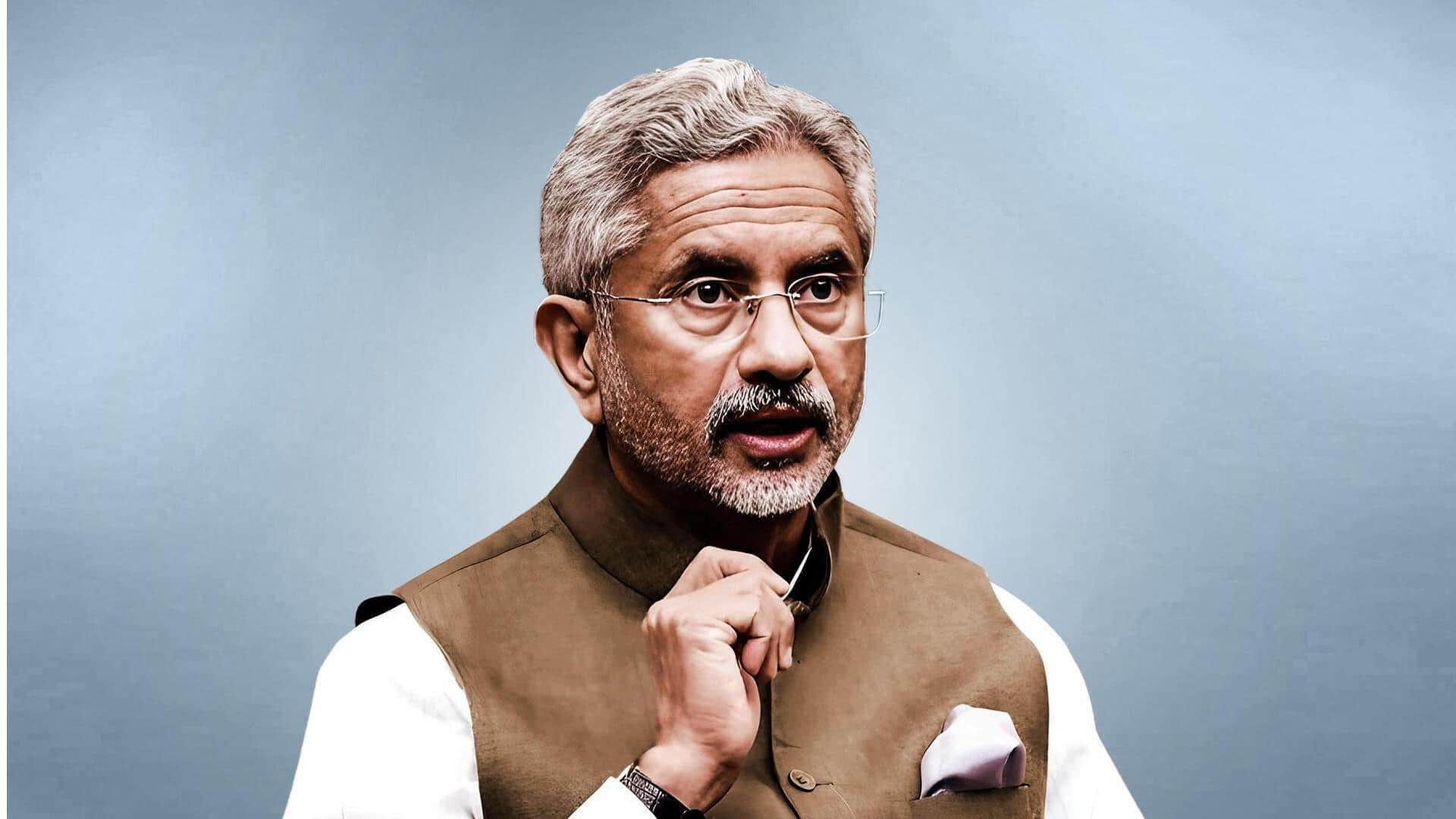
India seeks evidence from Canada on Nijjar killing allegation: Jaishankar
What's the story
External Affairs Minister (EAM) S Jaishankar revealed on Wednesday that India has asked Canada to provide proof to back its allegations that Indian agents were involved in the murder of Khalistani terrorist Hardeep Singh Nijjar in British Columbia on June 18. Furthermore, he claimed that India was not ruling out a probe into the matter.
Context
Why does this story matter?
Diplomatic ties between New Delhi and Ottawa got strained after Canadian Prime Minister Justin Trudeau accused India in September of orchestrating Nijjar's assassination on Canadian soil and expelled an Indian diplomat. India dismissed the claims, calling Canada's allegations politically motivated. On Sunday, Trudeau once again reiterated Canada's stand and denounced the Indian government's decision to expel over 40 Canadian diplomats last month.
Details
We are not ruling out an investigation: Jaishankar
"If you have a reason to make such an allegation, please share the evidence because we are not ruling out an investigation," Jaishankar, who is on a five-day official visit to the United Kingdom (UK), said. Notably, Jaishankar's remarks came in response to questions asked by veteran journalist Lionel Barber during a conversation titled "How a Billion People See the World."
What Next?
Jaishankar highlights misuse of freedom
He stated that freedom of speech and expression comes with a specific responsibility, and the misuse of those freedoms and tolerating that mishandling for political reasons would be highly immoral. "It had come to a situation where the diplomats of my country, including the High Commissioner, have been attacked, smoke bombs were thrown with no action taken," he added.
Twitter Post
Check out EAM's comments here
#WATCH | London, UK: On Canada PM Justin Trudeau's allegations, External Affairs Minister of India, Dr S Jaishankar says, "...We have told the Canadians...The context is that in Canada, we feel that Canadian politics has given space to violent and extreme political opinions which… pic.twitter.com/XzP6OkYBSo
— ANI (@ANI) November 15, 2023
Know more
Trudeau talks violation of Vienna Convention by India
Trudeau on Sunday claimed that Canada has "very serious" reasons to believe that Indian agents were involved in Nijjar's killing and argued that New Delhi's move "to kick out" Canadian diplomats violated their rights under the Vienna Convention. "If bigger countries can violate international law without consequences, then the whole world gets more dangerous for everyone," the Canadian PM stated.